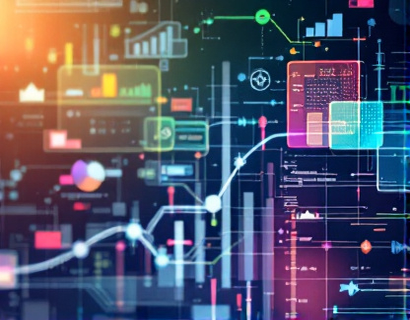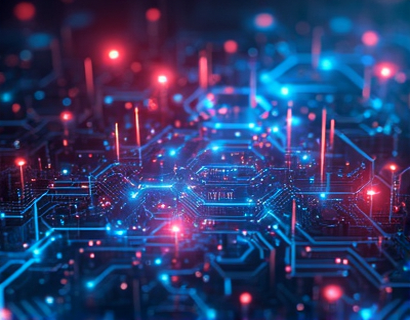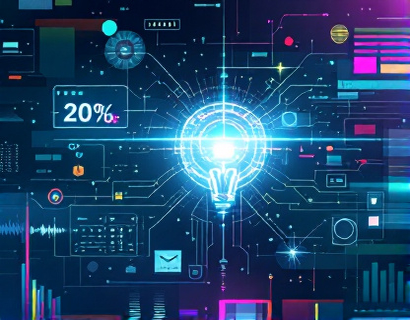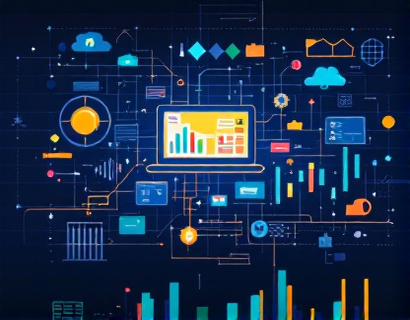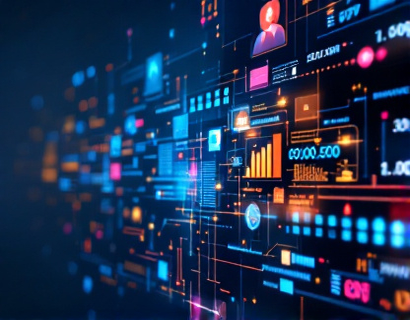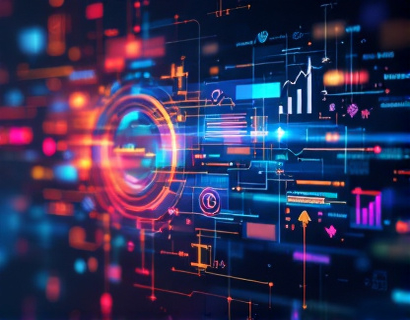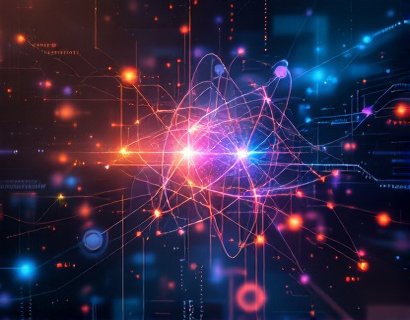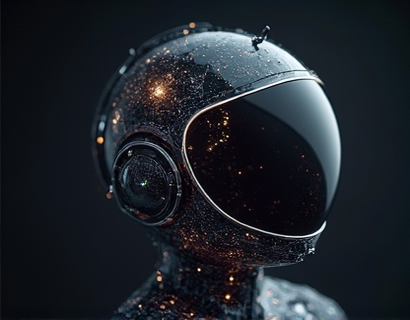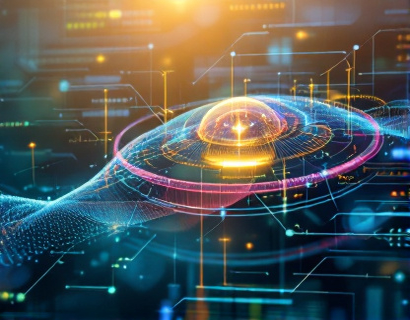AI and Crypto: Catalysts for Next-Gen Productivity Transformation
The intersection of artificial intelligence and cryptocurrency is paving the way for a revolutionary transformation in productivity. This fusion of technologies is not just an evolution but a paradigm shift, offering tech-savvy professionals and early adopters unprecedented tools for intelligent task management and seamless workflow optimization. As we embark on this transformative journey, it's essential to understand how these two domains are intertwining to create a more efficient, secure, and innovative digital landscape.
Understanding the Synergy
The synergy between AI and cryptocurrency lies in their shared foundation of decentralization and transparency. Traditional productivity tools often rely on centralized servers, making them vulnerable to security breaches and data manipulation. By leveraging blockchain technology, a cornerstone of cryptocurrency, these tools can achieve a higher level of security and trust. AI, on the other hand, brings the power of machine learning and natural language processing, enabling smarter, more intuitive task management and automation.
When combined, AI and cryptocurrency create a synergistic effect that enhances both the functionality and reliability of productivity solutions. For instance, smart contracts on the blockchain can automate and enforce agreements without intermediaries, while AI can optimize these contracts by predicting outcomes and suggesting improvements. This dual approach not only streamlines processes but also ensures that transactions are transparent and tamper-proof.
Enhanced Security Through Blockchain
One of the most significant advantages of integrating AI with cryptocurrency is the enhanced security it provides. Blockchain technology ensures that data is immutable and distributed across a network of nodes, making it extremely difficult for malicious actors to alter or manipulate information. This is particularly crucial in productivity environments where sensitive data and critical tasks are handled regularly.
AI can further bolster security by detecting and mitigating threats in real-time. Machine learning algorithms can analyze patterns and identify anomalies, alerting users to potential security breaches before they occur. This proactive approach to security is a game-changer, especially in industries where data breaches can have severe consequences. By combining the immutability of blockchain with the predictive capabilities of AI, productivity tools can offer a level of security that was previously unattainable.
Intelligent Task Management
AI-driven task management is revolutionizing the way professionals handle their workloads. Traditional task management tools often struggle with context awareness and adaptability, leading to inefficient workflows and missed deadlines. With AI, these tools can understand the context of tasks, prioritize them based on urgency and importance, and even suggest optimal times for completion.
For example, an AI-powered task manager can analyze a user's calendar, email, and previous task completion patterns to predict the best time to schedule a new task. It can also integrate with other productivity tools, such as project management software and communication platforms, to create a seamless workflow. This level of integration and intelligence ensures that users can focus on high-value tasks while the system handles the mundane and repetitive aspects of work.
Automated Workflow Optimization
Workflow optimization is another area where AI and cryptocurrency converge to drive significant improvements. Traditional workflows often involve multiple steps and interdependencies, making them prone to bottlenecks and inefficiencies. AI can analyze these workflows, identify bottlenecks, and suggest optimizations in real-time.
Cryptocurrency adds an additional layer of efficiency through the use of tokens and smart contracts. For instance, a smart contract can automate the payment process for completed tasks, ensuring that all parties involved are compensated promptly and transparently. This not only speeds up the workflow but also reduces the administrative overhead associated with manual payments and invoicing.
Moreover, AI can optimize resource allocation by predicting demand and adjusting resources accordingly. This dynamic allocation ensures that the right resources are available at the right time, minimizing downtime and maximizing productivity. In a decentralized environment, these optimizations can be implemented across a network, further enhancing the overall efficiency of the system.
Decentralized Identity and Access Management
Identity and access management are critical components of any productivity ecosystem. Traditional systems often rely on centralized identity providers, which can be a single point of failure and a target for cyberattacks. By leveraging blockchain and AI, a decentralized identity system can be created that is both secure and user-controlled.
AI can help manage and verify digital identities by analyzing behavioral patterns and biometric data, ensuring that only authorized users access sensitive information and tools. Blockchain technology ensures that these identities are stored securely and can be verified across different platforms and services. This decentralized approach not only enhances security but also gives users greater control over their personal data.
Tokenized Incentives and Gamification
Tokenized incentives and gamification are innovative ways to motivate and engage users in productivity tasks. By issuing tokens that represent rewards or privileges, organizations can create a more engaging and rewarding work environment. AI can analyze user behavior and performance to dynamically adjust these incentives, ensuring that they remain motivating and relevant.
For example, a team management platform could use AI to track project progress and award tokens to team members based on their contributions and achievements. These tokens can then be used to access premium features, participate in exclusive events, or even be traded for other cryptocurrencies. This gamification approach not only boosts morale but also fosters a sense of community and collaboration.
Predictive Analytics and Decision Support
AI-driven predictive analytics can provide valuable insights that support better decision-making in productivity environments. By analyzing historical data and current trends, AI can forecast future outcomes and suggest data-driven decisions. This is particularly useful in areas such as project planning, resource allocation, and risk management.
Cryptocurrency can enhance this process by providing a transparent and immutable record of all data and transactions. This transparency ensures that all stakeholders have access to the same information, reducing the risk of miscommunication and errors. AI can process this data in real-time, offering actionable insights that help users make informed decisions quickly.
Challenges and Considerations
While the integration of AI and cryptocurrency offers numerous benefits, it also comes with its own set of challenges and considerations. One of the primary concerns is the regulatory landscape. The use of cryptocurrency is still evolving, and different regions have varying regulations that can impact the implementation of these technologies.
Another challenge is the technical complexity involved in integrating AI and blockchain. Developers need to have a deep understanding of both domains to create robust and secure solutions. Additionally, there is a learning curve for users who need to adapt to these new technologies. Providing comprehensive training and support is essential to ensure a smooth transition.
Privacy is another critical aspect to consider. While blockchain offers transparency, it can also raise concerns about data privacy. Implementing zero-knowledge proofs and other privacy-preserving techniques can help address these concerns, ensuring that sensitive information remains confidential.
Future Prospects
The future of AI and cryptocurrency in productivity is bright, with numerous potential developments on the horizon. As the technology matures, we can expect more sophisticated AI models that can better understand and predict user behavior, leading to even more personalized and efficient productivity tools.
The rise of decentralized applications (dApps) powered by blockchain and AI will continue to transform the way we work and collaborate. These dApps can offer new levels of autonomy and control, allowing users to manage their productivity workflows without relying on centralized authorities. The integration of Internet of Things (IoT) devices with AI and blockchain can further enhance productivity by creating smart, interconnected environments that automate and optimize various tasks.
In conclusion, the convergence of AI and cryptocurrency is not just a trend but a fundamental shift in how we approach productivity. By leveraging the strengths of both technologies, we can create a more secure, efficient, and innovative digital ecosystem that empowers professionals and early adopters to achieve new heights of productivity and success.





